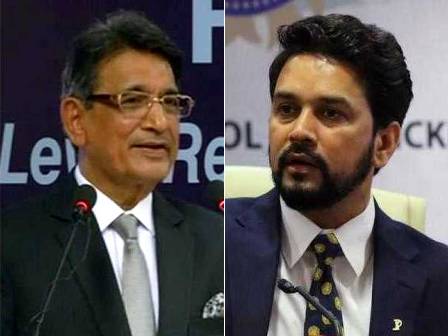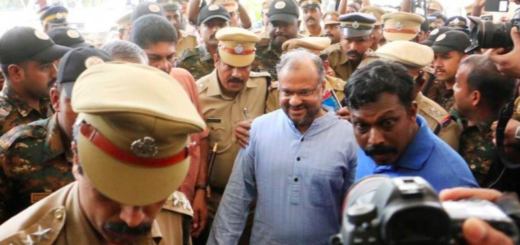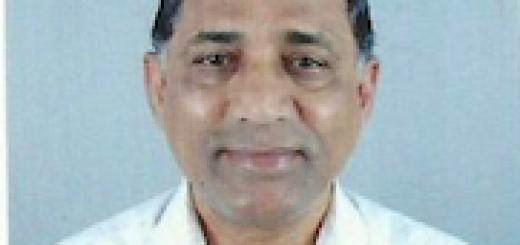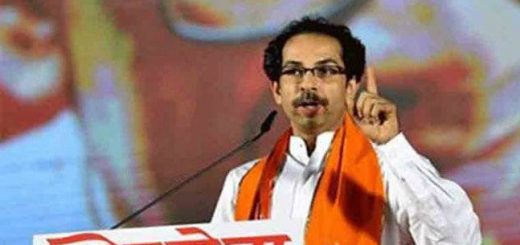The New Year begins with two Landmark Judgements by Supreme Court of India

(Note: The New Year began with two landmark judgements by the Supreme Court of India, on Monday 2nd January 2017. The first was clipping the wings, in effect dislodging, BCCI President Anurag Thakur and Secretary Ajay Shirke, after giving them a long rope. But power makes people do strange things, as one sports journalist commented on NDTV on 2nd January night. Being India's most cash-rich sports association, BCCI honchos considered themselves above law and defied even the Supreme Court. The second was the historic judgement on any appeal for votes on the ground of "religion, race, caste, community or language". It said religion has no role in the electoral process as relationship between God and man was strictly personal and should not affect electoral process which is secular in nature. Both the judgements will have wide ramifications – one on all sports bodies and the high-handed manner they function and the other on making tall promises of granting quotas to religious communities, Dalits and OBCs, including building of Mandirs and Mosques – Isaac Gomes).
On Monday 2nd January 2017, the Supreme Court of India in a landmark order of the three-judge bench comprising Chief Justice of India T.S. Thakur, and Justices A.M. Khanwilkar and D.Y. Chandrachud, dismantled the BCCI's existing power structure, and ordered the removal of the Board President Anurag Thakur and Secretary Ajay Shirke from office with immediate effect.
The order was the culmination of a long-standing impasse between the BCCI and Justice Lodha Committee: the board had resisted implementing most of the Committee's recommendations on Transparency and Accountability despite being told to do so by the Supreme Court order of July 18, 2016.
The court also ordered that other office bearers of the BCCI and state associations who did not meet the eligibility criteria set by the Lodha Committee shall "cease to hold office" immediately. According to the committee's recommendations, an office bearer should be a citizen of India, should not be 70 years or older, should not be a government servant or minister, should not hold office in another sports organisation, should not have held office with the BCCI or state association for more than nine years or three terms (the Lodha Committee said that no BCCI office-bearer can have more than two consecutive terms), should not be insolvent or of unsound mind, and should not have a criminal record.
All existing office bearers who fulfilled the eligibility criteria were permitted to continue in their roles, but were asked to file an "unconditional undertaking" in the Supreme Court within four weeks from January 2 that they would implement the Lodha Committee's recommendations.
The order read. "Persons who have a vested interest in continuing in their positions in spite of the norms noted above have ensured that the writ of the court is obstructed and impeded.
"This Court having furnished sufficient opportunities to BCCI to comply, it is constrained now to take recourse to coercive steps to ensure that the directions contained in its final judgment and order are not left to be a writ in sand."
This judgement was given as any suggestions from outside for improvement was countered or set aside by BCCI bosses who with power having gone to their heads, had the audacity to consider a law unto themselves, even daring to toy with the Supreme Court of India. Kudos to Chief Justice of India T.S. Thakur, and Justices A.M. Khanwilkar and D.Y. Chandrachud, for shaking up the all-powerful BCCI where politicians were having a field day. After this judgement, their days of honeymoon will come to an end. One would recall how Sharad Power and Buddhadeb Bhattacharya and their ilks colluded to dethrone Jagmohan Dalmiya from BCCI Presidentship. This resulted in Sourav Ganguly, one of the best cricket captains the world has seen and who took over the reins in the midst of betting scandal and turned around the Indian team, in being axed. His crime was he did not allow the betting syndicate remote-controlled by Dawood Ibrahim, take control of Indian Cricket. After Sourav left, the Indian cricket, especially IPL, again became a victim of the betting syndicate. Sourav Ganguly was the key witness to Justice Mudgal Committee. No wonder, last night the great Sunil Gavaskar tipped Sourav as the worthiest candidate to head BCCI.
The top ten recommendations of Justice Lodha Committe are reproduced below (With inputs from agencies) :
1. One association of each state will be a full member and will have the right to vote. The Lodha panel proposed the relegation of Railways, Services and Universities as Associate members.
2. It recommended separating the governing bodies of the Indian Premier League (IPL) and BCCI. It also proposed restricting the powers of the IPL Governing Council.
3. The panel stated that BCCI office bearers must not be ministers or government servants and that they must have not held office in the BCCI for a period of nine years or three terms. The Lodha committee said that no BCCI office-bearer can have more than two consecutive terms.
4. Office-bearers in BCCI should not be beyond the age of 70 years.
5. The panel also recommended legalisation of betting with an inbuilt mechanism.
6. The report also proposed the constitution and establishment of a players association.
7. For the sake of transparency BCCI was asked to upload all its rules and other details on the official website.
8. The panel stated that an Ethics Officer will decide on conflict of interest.
9. The panel suggested that the BCCI should come under the purview of the Right to Information (RTI) Act.
10. According to the panel, cricketing matters of the BCCI should be handled by former players while non-cricketing matters would be handled by CEO along with six assistant managers and two committees.
The above judgement is a stark reminder to registered Christian bodies /institutions to set their houses in order. A large number of organisations:
- Have no transparency and accountability
- Operate in a coterie through opaque and unjust voting system
- Members hold office bearer posts in multiple associations
- The President has unbriddled/ arbitrary power and
- The same persons wear different hats in different committees.
- Even if these anomalies are pointed out, they are winked at by the Bishops and the Church-owned newsletters do not publish them. They only publish "Good News" of prayer meets, cutting of ribbons, seminars and cut & paste articles from international and national journals.
In another majority verdict, the Supreme Court of India today held that any appeal for votes on the ground of "religion, race, caste, community or language" amounted to "corrupt practice" under the election law provision.
Referring to the term 'his religion' used in section 123(3) of the Representation of The Peoples (RP) Act, which deals with 'corrupt practice', Chief Justice T S Thakur and three others in the 4:3 verdict said it meant the religion and caste of all including candidates, their agents and voters.
This judgement will have a telling effect on the upcoming Assembly election Uttar Pradesh, Uttrakhand, Punjab, Goa and Manipur. It will also ensure that the secular fabric of the Indian Constitution is not toyed with by polticians and religious leaders.
This far-reaching verdict should be extended to Education and Uniform Civil Code where a concerted attempt is being made by vested interests, including majority and minority groups, to play the religious, caste and creed cards, to seriously impact secularism, the heart of our Constitution.
















